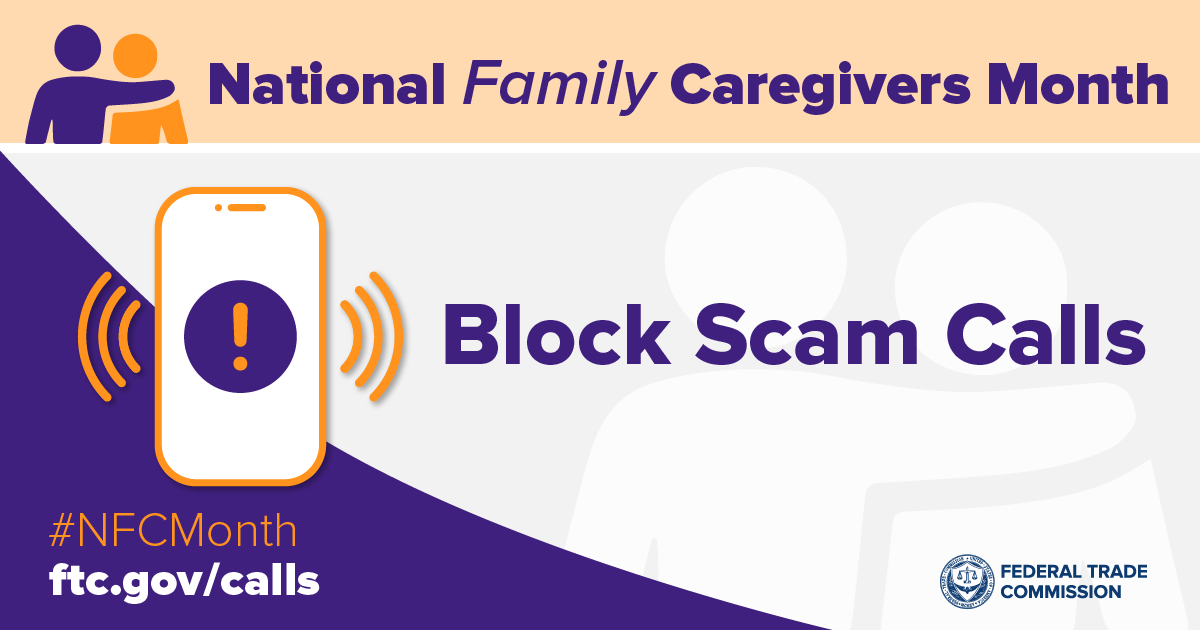 Calls from scammers are annoying and can cause a lot of trouble when you realize, too late, that they’re scams. What’s even worse? When they target a client or loved one you’re caring for. So today, as part of National Family Caregivers Month, we’re talking about how to spot and block scam calls.
Calls from scammers are annoying and can cause a lot of trouble when you realize, too late, that they’re scams. What’s even worse? When they target a client or loved one you’re caring for. So today, as part of National Family Caregivers Month, we’re talking about how to spot and block scam calls.
Scammers might pretend to be with the government, a grandchild, tech support, or a potential love interest. Listen to this call from a scammer pretending to be with the Social Security Administration:
The real Social Security Administration won’t threaten people or suspend their Social Security numbers and won’t ask for payment this way. It’s a scam.
Here are some steps you can take to help your loved one get fewer scam calls:
- Look into call-blocking. There are technologies and devices that can stop a lot of scam calls and illegal robocalls before they reach you. Cell phones, home phones that make calls over the internet (VoIP), and landlines each have their own call-blocking options. Just know that call-blocking services could block some legitimate calls.
- Sign up for the National Do Not Call registry to stop calls from real companies. But know that the registry can’t stop calls from scammers.
- If you answer one of these calls, hang up. If possible, tell the person you’re caring for to do the same. If the call is a robocall, don’t press any numbers or it could lead to more calls.
- Warn your loved one about scams. If possible, talk to the person you care for about different types of scams that can happen over the phone.
- Know when to report identity theft. If you find out the person you’re caring for gave their personal information to a scammer, go to IdentityTheft.gov to report it and find out what you can do next.
Learn more about unwanted calls at ftc.gov/calls. And learn more about scams targeting older people at ftc.gov/PassItOn.

In reply to I REALLY APPRECIATE THE by CAINAN1 Don't …
This FTC article explains how you can block unwanted text messages through your phone or through your wireless carrier.